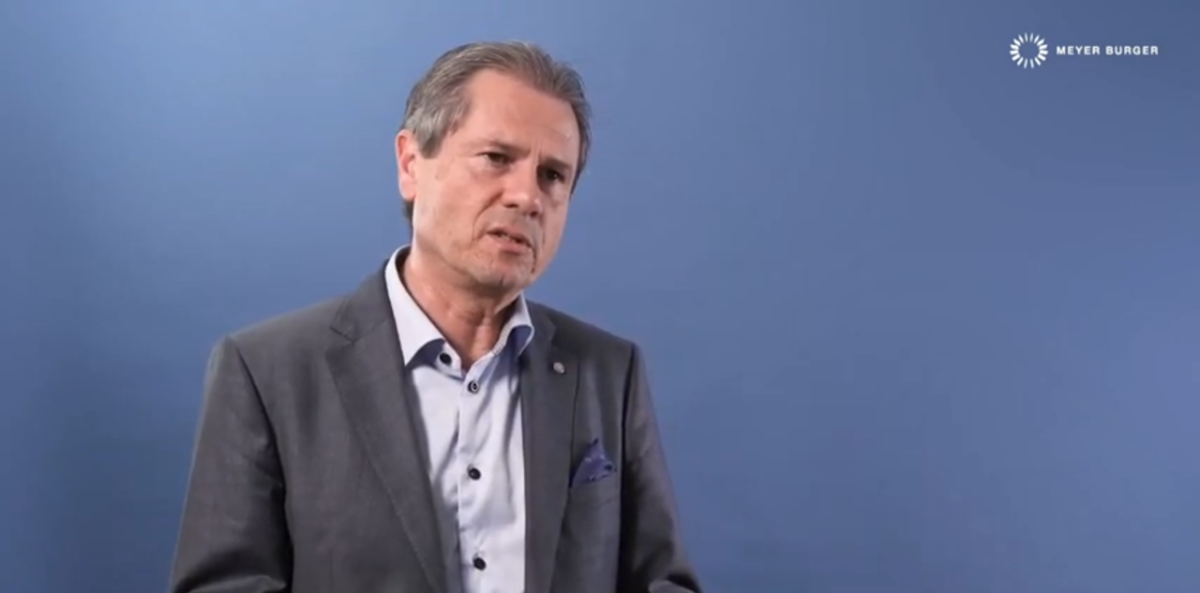Meyer Burger's new chairman has acknowledged that the road ahead is rocky for Europe's largest solar equipment supplier, but he is asking shareholders to back its plan to refocus on high-yield technologies and markets outside of China.
“We decided to review our corporate strategy from the ground up,” Chairman Remo Lütolf said in a video that was recently posted to the Swiss equipment manufacturer’s website. To this end, he has asked a group of recalcitrant shareholders to allow Meyer Burger to restructure “in peace, without having to worry about disruptions.”
Throughout the past three months, Lütolf has overseen a particularly turbulent period for Meyer Burger’s board of directors. He is now calling for calm as a consortium of shareholders, led by Sentis Capital, intensifies its calls for significant management changes and a greater say in the company’s future decisions.
On Aug. 12, the shareholder consortium asked to convene an extraordinary general meeting. It also published its demands online.
“I find the constructive criticism of our shareholders important for the development of the company,” said Lütolf. “On the other hand, when this criticism is first transmitted by the media, it can cause problems … and affect the reputation of Meyer Burger.”
Lütolf sees an urgent need to support Meyer Burger's management team as it prepares to restructure its operations. Over the past 12 months, the company has lost significant market share in China, and its margins there have also plunged. Sentis Capital recently claimed that Meyer Burger’s market share and sales in the country have both fallen by 50%.
Lütolf nevertheless supports Meyer Burger CEO Hans Brändle and his management team. He has insisted that they are not responsible for the difficult market conditions in which the company operates.
“We are seeing increasing competition in the so-called standard photovoltaic industry,” said Lütolf. “PERC technology is reaching the limits of its development and Chinese manufacturers are offering good enough solutions at very low prices.”
Faced with this challenge, Meyer Burger is banking on its technological lead in high-efficiency PV cells, as it plans to focus on markets closer to its European roots.
“Through our collaboration with Oxford PV, we are already engaged in future photovoltaic technology: heterojunction-based perovskite-based cells,” said Lütolf.
Meyer Burger recently canceled its plans to relocate in China and entered into a strategic partnership with REC Solar. The Swiss group plans to supply the Norwegian manufacturer with the equipment it needs to produce PV modules at the gigawatt scale.
“The mass production of REC Solar's first heterojunction line will be a project that will grab global attention,” said Lütolf. “This interest will spark orders.”
This content is protected by copyright and may not be reused. If you want to cooperate with us and would like to reuse some of our content, please contact: editors@pv-magazine.com.



1 comment
By submitting this form you agree to pv magazine using your data for the purposes of publishing your comment.
Your personal data will only be disclosed or otherwise transmitted to third parties for the purposes of spam filtering or if this is necessary for technical maintenance of the website. Any other transfer to third parties will not take place unless this is justified on the basis of applicable data protection regulations or if pv magazine is legally obliged to do so.
You may revoke this consent at any time with effect for the future, in which case your personal data will be deleted immediately. Otherwise, your data will be deleted if pv magazine has processed your request or the purpose of data storage is fulfilled.
Further information on data privacy can be found in our Data Protection Policy.